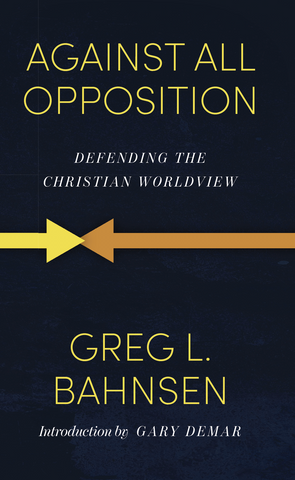Lawrence M. Krauss is a renowned cosmologist and professor at the School of Earth and Space Exploration at Arizona State University. He is the author of numerous articles and books, including the best-selling The Physics of Star Trek and A Universe from Nothing that includes an Afterword from atheist provocateur Richard Dawkins. Krauss is an outspoken atheist, evolutionist, and anti-Christian. The following is his starting point upon which he builds his worldview:
[M]ost of the energy in the universe resides in some mysterious, now inexplicable form permeating all of empty space. It’s not an understatement to say that the discovery has changed the playing field of modern cosmology.
For one thing, this discovery has produced remarkable new support for the idea that our universe arose from precisely nothing.[1]
He goes on to claim that “every day beautiful and miraculous objects suddenly appear.” Krauss mentions “miracles,” and Richard Dawkins, who wrote the Afterword to Krauss’ book and heaps abundant praise upon it, describes evolution as “magic” in his own book The Magic of Reality: How We Know What’s Really True.

Against All Opposition
An apologetic methodology that claims Christians should be "open," "objective," and "tolerant" of all opinions when they defend the Christian faith is like a person who plans to stop a man from committing suicide by taking the hundred-story plunge with him, hoping to convince the lost soul on the way down. No one in his right mind would make such a concession to foolishness. But Christians do it all the time when they adopt the operating presuppositions of unbelievers. There are no "neutral" assumptions about reality.
Buy NowEvolutionists must believe in “miracles” and “magic” like spontaneous generation. An evolutionist like Krauss can’t explain how the world works except to descend into irrationality. The following is from the Preface to his book:
In the interests of full disclosure right at the outset I must admit that I am not sympathetic to the conviction that creation requires a creator, which is at the basis of all the world’s religions. Every day beautiful and miraculous objects suddenly appear, from snowflakes on a cold winter morning to vibrant rainbows after a late-afternoon summer shower. Yet no one but the most ardent fundamentalists would suggest that that each and every such object is lovingly and painstakingly and, most importantly, purposely created by a divine intelligence.[2]
I don’t know of a single “fundamentalist” who has ever claimed that God spends His time designing every snowflake. God did design the material (and everything else) and the necessary conditions that make up snowflakes and the process by which they form. Dr. Krauss has not explained how the water came into existence to make snowflakes or the informational structure that constitutes the substance we call water to explain how it always reacts the same way to temperature variations and predictable weather conditions.
Here is the Kraussian “science” behind it all: “our universe arose from precisely nothing.” So, for Krauss, “nothing” must be “a kind of ‘something’” because “[a]bsolute nothingness means no laws, no vacuums, no fields, no energy, no structures, no physical or mental entities of any kind—and no ‘symmetries.’ It has no properties or potentialities. Absolute nothingness cannot produce something given endless time—in fact, there can be no time in absolute nothingness.”[3]
Dr. Krauss is engaged in some evolutionary sleight of hand. He needs energy to make his evolutionary machine work. He must steal that energy from the theistic power plant that he ridicules, misrepresents, and claims doesn’t exist. Consider this bit of irrationality:
In fact, many laypeople as well as scientists revel in our ability to explain how snowflakes and rainbows can spontaneously appear, based on simple, elegant laws of physics.[4]
Snowflakes and rainbows don’t “spontaneously appear.” The material, conditions, and natural laws necessary for them to appear exist. What about the “laws of physics”? What makes them laws and keeps them as laws? No one has ever seen a law of physics. How does a materialist like Krauss account for non-physical entities like mathematics and physics in a cosmos that seemingly came into existence out of nothing and continues to operate in terms of fixed and predictable laws?
In 1960 the Princeton physicist—and subsequent Nobel Prize winner—Eugene Wigner raised a fundamental question: Why did the natural world always—so far as we know—obey laws of mathematics?
As argued by scholars such as Philip Davis and Reuben Hersh, mathematics exists independent of physical reality. … Despite the many other enormous advances of modern physics, little has changed in this regard. As Wigner wrote, “the enormous usefulness of mathematics in the natural sciences is something bordering on the mysterious and there is no rational explanation for it.”
In other words, as I argue in my book [God? Very Probably: Five Rational Ways to Think about the Question of a God], it takes the existence of some kind of a god to make the mathematical underpinnings of the universe comprehensible.[5]
Some evolutionists and non-religionists like physicist Max Tegmark [6] have gone so far to say that the cosmos—including us—“is nothing but mathematics.”[7] Does this mean that love, compassion, morality, and a whole host of human emotions are nothing but mathematics? I can hear a biological unit on Valentine’s Day expressing his affinity for his partnered biological unit say, “You are my E = mc2.” Dr. Wei-Hock “Willie” Soon argues, using some of the imponderables in math as an example, that “God has given us all this light”[8] to understand the world. Without God we mere mortals don’t have the capacity to understand our world.
Krauss has stated that “Science is only truly consistent with an atheistic worldview…” I’m sure Isaac Newton, Robert Boyle, Johannes Kepler, Joseph Lister, James Young Simpson, Samuel F.B. Morse, Wilbur and Orville Wright, Werner von Braun, Raymond Damadian (inventor of the MRI), and many other scientists would be surprised to know this since modern scientists stand on the shoulders of these Christian scientists.
On the centenary of James Clerk Maxwell’s birth, Albert Einstein described Maxwell’s work as the “‘most profound and the most fruitful that physics has experienced since the time of Newton.’ Einstein, when he visited the University of Cambridge in 1922, was told by his host that he had done great things because he stood on Newton’s shoulders; Einstein replied: ‘No I don’t. I stand on the shoulders of Maxwell.’”[9]
Maxwell’s work in the field of mathematical physics led to the invention of television, mobile phones, microwaves, and nuclear energy. He has been described as the father of modern physics. Maxwell (1831-1839) was a committed Christian who viewed his biblical faith as the basis for all the scientific work he did.
Let’s look at natural philosopher, chemist, physicist, and inventor Robert Boyle (1627-1691) who spent a portion of his fortune “to have the Bible translated into various languages” and worked with the created order for the good of humankind.
In his will and testament, Boyle “addressed his fellow members of the Royal Society of London, wishing them all success in ‘their laudable attempts, to discover the true Nature of the Works of God’ and ‘praying that they and all other Searchers into Physical Truths’ may thereby add ‘to the glory of the Great Author of Nature, and to the Comforter of mankind.’”[10]
The title of one of Boyle’s many books was The Christian Virtuoso, that is, “The Christian Scientist.” Boyle was not a single Christian voice crying in the wilderness of secular science. The membership of the Royal Society was made up of many Christians who shared Boyle’s view that “the world was God’s handiwork” and “it was their duty to study and understand this handiwork as a means of glorifying God.”[11]
On the archway above the wooden door of the Cavendish Laboratory, at Cambridge University, there is a Latin inscription that reads, Magna opera Domini. Exquista in omnes voluntates ejus.
The inscription had been placed there at the insistence of the physicist James Clerk Maxwell, the first Cavendish professor in 1871. The inscription quotes a biblical Psalm that reads, “Great are the works of the Lord, sought out by all who take pleasure therein” (Ps. 111:2).
The inscription summarized Maxwell’s inspiration for scientific study: the thought that works of nature reflect the work of a designing mind. In this belief he had been joined by many of the leading scientists of Western civilization for over four hundred years—Copernicus, Kepler, Ray, Linnaeus, Curvier, Aggassiz, Boyle, Newton, Kelvin, Farady, Rutherford—on and on the list could go.”[12]
If there are no moral laws, then whatever exists, is right. No, it’s worse than that. There is no such thing as “right.” Chris Hedges, author of American Fascists, has declared that evolution is “morally neutral.” In fact, since there are no moral laws, right and wrong are simply categories to distinguish the varied responses of pain receptors in the body. But a short bout of pain might be a good thing if long-term issues are at stake. Beating your two children with a hammer so they won’t experience a life of disappointment could be the noble thing to do. Who can say otherwise, a point I repeatedly make in my book Why It Might Be OK to Eat Your Neighbor: If Atheism is Right Can Anything be Wrong?

Why It Might Be OK to Eat Your Neighbor
The most damning assessment of a matter-only cosmos devoid of a Creator is that we got to this place in our evolutionary history by acts of violence whereby the strong conquered the weak with no one to support or condemn them. Why It Might Be OK to Eat Your Neighbor repeatedly raises the issue of accounting for the conscience, good and evil, and loving our neighbor. It’s shocking to read what atheists say about a cosmos devoid of meaning and morality.
Buy NowHedges writes the following in his book I Don’t Believe in Atheists:
The New Atheists misuse Darwin and evolutionary biology as egregiously as the Christian fundamentalists misuse the Bible. Darwinism, which pays homage to the final and complete mastery of our animal natures, never posits that human beings can transcend their natures and create a human paradise. It argues the opposite. The illusion of human progress, in the name of evolutionary biology, is actually anti-Darwinian. And in this the New Atheists are honest neither about science nor Darwin. Science is used by them to supplant religion, to provide meaning and hope. It is used to assuage these innate religious yearnings. Since scientific knowledge is cumulative, albeit morally neutral, it gives the illusion that human history and human progress is also cumulative. And in many ways science has simply replaced the faith our premodern ancestors had in God.
*****
But more ominously, the New Atheists ignore the wisdom of original sin, as well as studies in cognitive behavior that illustrate that human nature is often irrational and flawed. We are all governed, even in our moments of greatest lucidity, by unconscious forces. This understanding, whether achieved through Augustine or Freud, has been our most potent check on schemes of human perfectibility and utopian visions. But the New Atheists, like all believers in myth, refuse to listen. They peddle the alluring and enticing fantasy of inevitable moral and material progress. This vision is not based on science, history or reason. It is an act of faith. It is a form of the occult. It is no more scientifically legitimate than alchemy.
Our supposed “animal natures,” if atheistic evolution is consistent with itself, got us to this place, and there was no moral voice to say there was anything wrong with the aggressive nature of biological survival of the fittest. Since the physical cosmos did not spring from nothing, the same must be said for morality, and it’s beginning to show as more people are becoming consistent with the idea of nothing comes from nothing, including morality.
[1]Lawrence M. Krauss, A Universe from Nothing: Why There is Something Rather Than Nothing (New York: Free Press, 2012), xiii.
[2]Krauss, A Universe from Nothing, xiii.
[3]Abraham Varghese, “The ‘New Atheism’: A Critical Appraisal of Dawkins, Dennett, Wolpert, Harris, and Stenger,” in Anthony Flew with Abraham Varghese, There is a God: How the World’s Most Notorious Atheist Changed His Mind (New York: HarperCollins, 2007), 170.
[4]Krauss, A Universe from Nothing, xiii.
[5]Robert H. Helson, “Existence of God: The Rational Arguments from Mathematics to Human Consciousness,” Independent (May 17, 2017): http://bit.ly/2w1Fcli
[6]Max Tegmark, Our Mathematical Universe: My Quest for the Ultimate Nature of Reality Paperback (New York: Vintage Books, 2015), 5.
[7]Max Tegmark, “The Great Math Mystery,” NOVA.
[8]Dr. Soon states, contrary to mere mortal secularists like Al Gore who claim he is helping to “save the planet, that CO2 is “the gas of life.” https://twitter.com/TuckerCarlson/status/1744777758507504061
[9]Ian Hutchinson, “James Clerk Maxwell and the Christian Proposition”: http://silas.psfc.mit.edu/Maxwell/
[10]Rodney Stark, For the Glory of God: How Monotheism Led to Reformations, Science, Witch-Hunts, and the end of Slavery (Princeton, NJ: Princeton University Press, 2003), 158.
[11]Stark, For the Glory of God, 158.
[12]Stephen C. Meyer, Signature in the Cell: DNA and the Evidence for Intelligent Design (New York Harper/Collins, 2009), 145.

